Kidney stones are a common and often painful condition affecting millions globally. Characterized by hard mineral deposits formed within the kidneys, these stones can cause severe discomfort and complications if left unchecked. Prevention is key, and understanding how lifestyle and dietary choices impact the risk of stone formation is crucial. This post delves into scientifically-backed methods to prevent kidney stones, focusing on hydration, dietary adjustments, and lifestyle changes, offering readers a comprehensive guide to maintaining kidney health and overall well-being.
Contents
Drink A Lot Of Water

Staying adequately hydrated is paramount in the prevention of kidney stones. Water dilutes the substances in urine that lead to stones, such as calcium, oxalate, and uric acid. Ensuring a consistent and ample water intake helps the kidneys function efficiently, facilitating the elimination of waste and reducing the concentration of stone-forming minerals. While individual hydration needs can vary, aiming for at least eight glasses of water daily is a general guideline that serves as a good starting point.
Incorporating more water into daily routines doesn’t have to be a chore. Carrying a reusable water bottle ensures easy access to water throughout the day. Monitoring urine color—a pale, straw-like color indicates proper hydration—provides a practical way to gauge if intake is sufficient. Remember, environmental factors and physical activity levels can increase fluid requirements, so adjusting intake during hot weather or after intense exercise is essential for maintaining optimal hydration.
Watch Your Sodium Intake
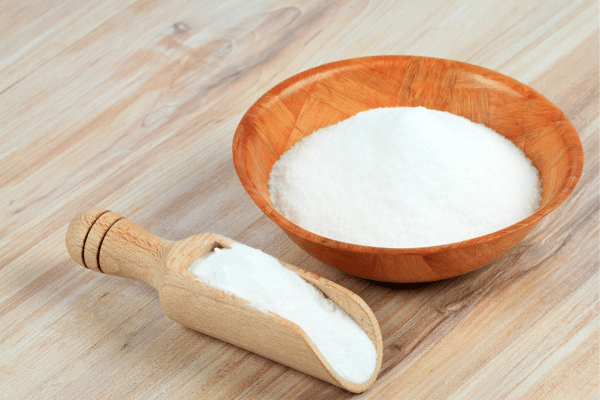
Excessive sodium consumption is a known culprit in the formation of kidney stones, as it increases calcium levels in the urine. Processed and canned foods, along with restaurant meals, often contain high sodium levels, contributing to an increased risk of stone formation. Reducing sodium intake not only aids in preventing kidney stones but also supports overall cardiovascular health.
Adopting a low-sodium diet involves more than just putting down the salt shaker. It requires a conscious effort to choose fresh, unprocessed foods over their processed counterparts. Reading food labels diligently to understand the sodium content in packaged foods is crucial. Enhancing the flavor of meals with herbs and spices instead of salt can significantly reduce sodium intake without compromising taste. By making these adjustments, the risk of kidney stone formation decreases, promoting better kidney health and a more balanced diet.
Balance Calcium Intake
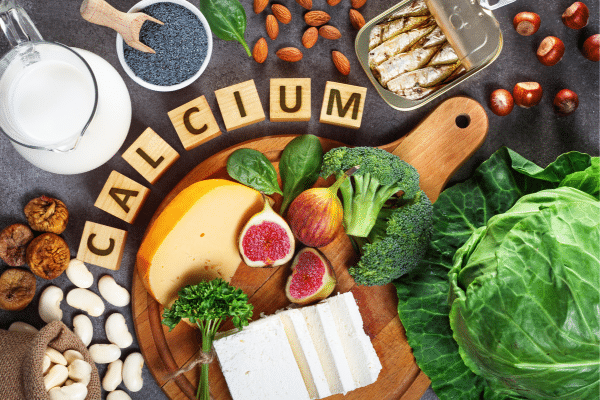
Contrary to popular belief, skimping on calcium may not prevent kidney stones; in fact, it might do the opposite. Calcium plays a pivotal role in reducing the risk of certain types of kidney stones, as it binds with oxalates in the food consumed, preventing them from entering the kidneys and forming stones. The key is to source calcium from foods rather than supplements, as excessive supplementation could potentially lead to stone formation.
Maintaining a diet rich in calcium involves incorporating dairy products like milk, cheese, and yogurt, as well as non-dairy sources such as green leafy vegetables, tofu, and almonds. It’s crucial to pair calcium intake with oxalate-rich foods during meals to maximize the preventative benefits against kidney stones. Consulting with a healthcare provider can help determine the appropriate amount of daily calcium intake, ensuring it contributes to health without inadvertently increasing the risk of kidney stones.
Exercise Regularly

Engaging in regular physical activity is not only beneficial for overall health but also plays a specific role in preventing kidney stones. Moderate exercise helps the body manage weight, improve circulation, and enhance metabolic functions, all of which contribute to reduced risk factors for kidney stone formation. Keeping the body active ensures that calcium is used more effectively in bones rather than circulating in the bloodstream and potentially forming stones.
Incorporating physical activity into daily life doesn’t require exhaustive routines or gym memberships. Simple activities like walking, cycling, or swimming for at least 30 minutes most days of the week can significantly improve health. It’s essential to find an exercise routine that is enjoyable and sustainable, ensuring consistency and long-term commitment to a healthier lifestyle.
Cut Back On Meat
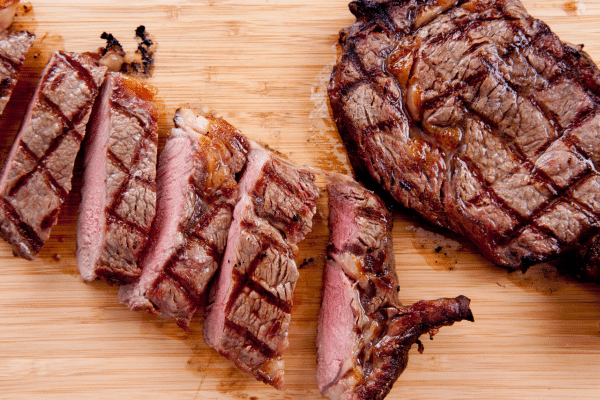
Diets high in animal protein can increase the risk of developing kidney stones, particularly uric acid stones. Meat, especially red meat, poultry, and seafood, can raise the amount of uric acid in urine. When uric acid levels become too high, it can lead to the formation of kidney stones. Additionally, a diet high in animal protein may reduce levels of citrate, the chemical in urine that helps prevent stones from forming.
Shifting towards a more plant-based diet can have profound benefits in reducing the risk of kidney stones. Incorporating alternative protein sources such as legumes, lentils, and quinoa not only reduces uric acid levels but also provides a rich array of nutrients beneficial for overall health. Balancing animal and plant-based proteins helps maintain optimal urine chemistry, reducing the likelihood of stone formation.
Eat Plenty Of Fruits And Vegetables
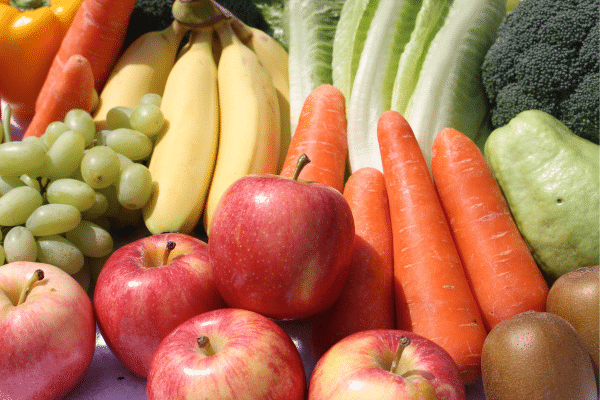
Fruits and vegetables are not only nutrient-dense but also play a significant role in preventing kidney stones. These food groups are high in fiber, vitamins, and minerals, all of which are beneficial for kidney health. Additionally, the water content in fruits and vegetables aids in hydration, further helping to dilute substances in the urine that could form stones.
Incorporating a variety of colorful fruits and vegetables into daily meals ensures a broad spectrum of nutrients. Options like citrus fruits, berries, and green leafy vegetables are particularly beneficial. Not only do they help maintain a balanced diet, but they also contribute to an alkaline urine environment, which is less conducive to the formation of kidney stones.
Limit Oxalate-Rich Foods
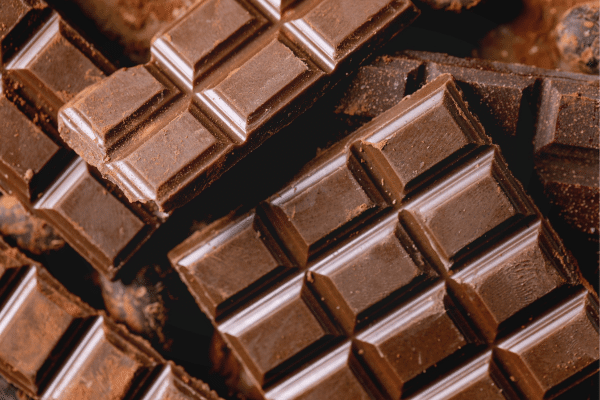
While it’s not necessary to completely eliminate oxalate-rich foods from the diet, it’s important to consume them in moderation, especially for individuals who are prone to forming calcium oxalate kidney stones. Foods like spinach, beets, and chocolate are high in oxalates, which can bind with calcium in the urine to form stones. Being mindful of the intake of these foods can help mitigate the risk.
Balancing oxalate-rich foods with calcium intake is crucial, as calcium can bind with oxalates in the gut, preventing them from being absorbed into the bloodstream and later transferred to the kidneys. It’s advisable to pair high-oxalate foods with a source of calcium to reduce the likelihood of stone formation. Consulting with a dietitian can provide tailored advice to manage oxalate intake effectively.
The Bottom Line
Kidney stone prevention involves a multifaceted approach that includes dietary adjustments, adequate hydration, regular physical activity, and lifestyle modifications. Each strategy plays a unique role in maintaining kidney health and minimizing the risk of stone formation. It’s important to adopt these measures as part of a comprehensive, balanced lifestyle rather than quick fixes. Embracing these changes can not only prevent kidney stones but also contribute to overall health and well-being. For personalized guidance and to address individual health concerns, it’s always best to consult with healthcare professionals.


